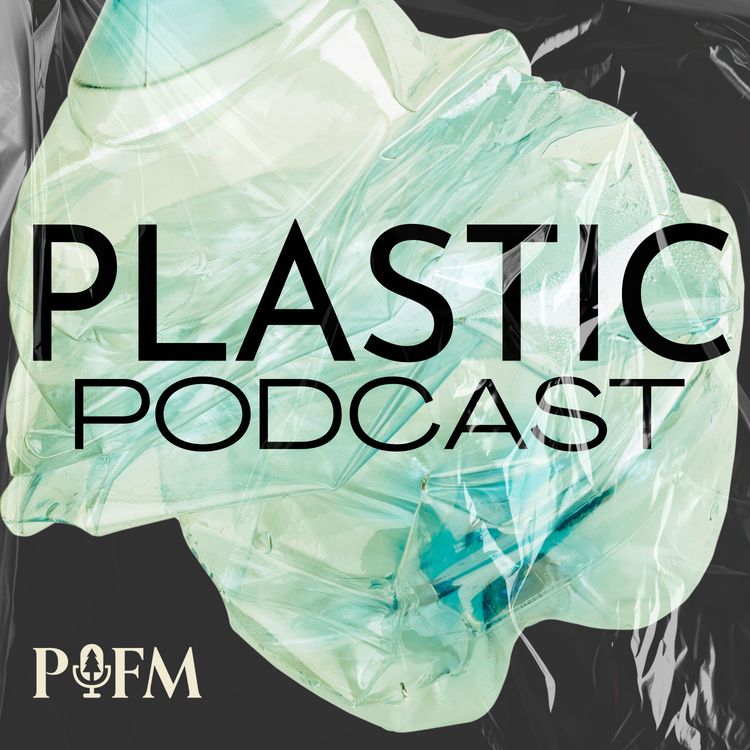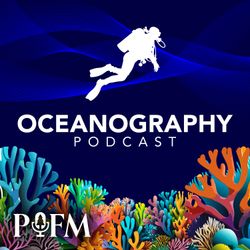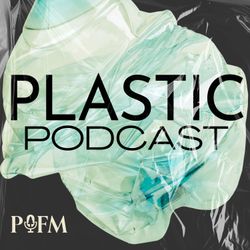Share

Plastic Podcast
Plastic Poems: Albatross, Atomic Bombs, and Autobiography with Allison Cobb
In this episode, host Clark Marchese delves into the world of poetry and plastic with guest Allison Cobb, author of "Plastic: An Autobiography." Exploring the intersections between environmental activism and creative expression, the discussion uncovers how poetic perspectives can deepen our understanding of plastic’s pervasive presence and its impact on the environment. Cobb shares her unique approach to environmental issues through poetic narratives, revealing connections between plastic pollution, historical events, and personal experiences. By integrating themes of war, wildlife, and wastefulness, Cobb's work serves as a catalyst for broader environmental consciousness and action. Join us as we explore how creativity and environmental responsibility can coexist in the pursuit of sustainable solutions.
Episode Guests: Allison Cobb
More information about Allison Cobb here
Find Allison’s book, Plastic: An Autobiography here
More information about the episode and the Plastic Podcast
Episode Transcript and more information on the Pine Forest Media Website
Follow Pine Forest Media on Instagram @pineforestmedia
Hosted, produced, written, and edited by Clark Marchese
Cover art and PFM logo by Laurel Wong.
Theme music by Tadeo Cabellos
More episodes
View all episodes

NEW Show: Oceanography (Trailer)
02:15|🎧 New from Pine Forest Media: OceanographyFrom the creators of The Plastic Podcast, Oceanography is a new weekly series exploring the science, policy, and people working to protect our oceans. Hosted by science communicator Clark Marchese, the podcast blends rigorous journalism with storytelling to uncover what’s happening beneath the surface—and why it matters.Each episode features global experts, including marine biologists, oceanographers, Indigenous leaders, and climate advocates. Topics include how whales communicate underwater, the magic of bioluminescent sharks, deep-sea ecosystems, and new fishing gear designed to protect endangered species.You’ll also hear from leaders at UNESCO and the Marine Protected Area Collaborative Network as they share how international treaties and local action are shaping the future of marine conservation.🎧 Listen to the trailer now and follow the show for new episodes starting July 29.🌊 Subscribe to Oceanography on Spotify, on Apple Podcasts, or wherever you stream.🌐 More at pineforestpods.com
8. The Road to Busan and Beyond: A United Nations Treaty on Plastics with Tara Olsen
45:30||Season 2, Ep. 8It’s time to talk about a United Nations Treaty on Plastic Pollution. After months of anticipation, this episode focuses on the treaty’s negotiating process, the main actors involved, and the key interests at play. Joined by expert guest Tara Olsen, a researcher from Lund University, the conversation explores the complexities of treaty negotiations, including the differences between signing and ratifying a treaty, the influence of international law, and the possible outcomes of the upcoming final negotiation session. Packed with insights, this episode provides a deep dive into the current state of the global effort to regulate plastic pollution and what might come next.Episode Guests: Tara Olsen Connect with Tara Olsen here.More on the Scientist’s Coalition for an Effective Plastics TreatyFollow the treaty negotiations with CIEL Follow the treaty negotiations with IISD More information about the episode and the Plastic PodcastEpisode Transcript and more information on the Pine Forest Media Website.Follow Pine Forest Media on Instagram @pineforestmediaHosted, produced, and edited by Clark Marchese Cover art and PFM logo by Laurel Wong. Theme music by Tadeo CabellosnmIrEoNgTpNsuezGnawp
7. The Evolution of Anti-Plastic Norms with Leah Shipton
33:14||Season 2, Ep. 7In this episode of Plastic Podcast, host Clark Marchese dives into the emergence and spread of anti-plastic movements, tracing their roots from local grassroots actions to global health policy. Clark speaks with Leah Shipton, a PhD candidate specializing in global health policy, who explains how health concerns drove the formation of anti-plastic norms worldwide. They discuss the role of norm entrepreneurs in spreading these norms, the challenges posed by industry-backed anti-entrepreneurs, and how this momentum led to the UN Treaty on Plastic Pollution. This insightful conversation ties together themes from previous episodes, setting the stage for the series finale, where the treaty itself will be explored in depth.Episode Guests: Leah ShiptonFind more information about Leah Shipton here. Find a link to Leah Shipton’s article here.Find more of Leah Shipton’s research on Google ScholarFollow Leah Shipton on XMore information about the episode and the Plastic PodcastEpisode Transcript and more information on the Pine Forest Media Website.Follow Pine Forest Media on Instagram @pineforestmediaHosted, produced, and edited by Clark Marchese Cover art and PFM logo by Laurel Wong. Theme music by Tadeo Cabellos
6. Cancer Alley and Environmental Gaslighting with Dr. Kimberly Terrell and Gianna St. Julien
46:29||Season 2, Ep. 6Today we dive into the case study of Cancer Alley. We investigate the environmental and health impacts of a region in Louisiana notorious for its high concentration of petrochemical plants. The discussion focuses on how pollution from these industries contributes to disproportionately high cancer rates, particularly in marginalized communities. Special guests Dr. Kimberly Terrell and Gianna St. Julien from Tulane Environmental Law Clinic share insights from their groundbreaking studies that link air pollution to increased cancer risks and explore the concept of environmental racism. The episode also highlights grassroots activism efforts aimed at addressing these injustices and the ongoing fight for meaningful policy change in the region.Episode Guests: Dr. Kimberly Terrell and Gianna St. JulienMore on the Tulane Environmental Law ClinicFind the Toxic Air Pollution Report hereFind the Racial Demographic Report hereMore on the Louisiana Bucket Brigade More on Rise St. JamesMore on Concerned Citizens of St. JohnPine Forest Media Something in the Water episode on plastic hereMore information about the episode and the Plastic PodcastEpisode Transcript and more information on the Pine Forest Media Website.Follow Pine Forest Media on Instagram @pineforestmediaHosted, produced, and edited by Clark Marchese Cover art and PFM logo by Laurel Wong. Theme music by Tadeo Cabellos
5. Neuston: Life on an Ocean Garbage Patch with Dr. Mark Gibbons
30:54||Season 2, Ep. 5Discover the fascinating world of neuston—tiny organisms living on the ocean's surface—and how they interact with plastic pollution in the South Indian Ocean subtropical gyre. In this episode of the Plastic Podcast, host Clark Marchese is joined by marine ecologist Dr. Mark Gibbons from the University of the Western Cape. Together, they delve into the unique dynamics of neuston communities, their role in the marine ecosystem, and the implications of plastic pollution on these delicate life forms. Learn why understanding these interactions is vital for future ocean cleanup efforts and the preservation of marine biodiversity.Episode Guests: Dr. Mark GibbonsFind more information about Dr. Gibbons here. Find a link to Dr. Gibbon’s article here.Find more of Dr. Gibbon’s research on Google ScholarFind images of all the cool neuston we talked about today here. More information about the episode and the Plastic PodcastEpisode Transcript and more information on the Pine Forest Media Website.Follow Pine Forest Media on Instagram @pineforestmediaHosted, produced, and edited by Clark Marchese Cover art and PFM logo by Laurel Wong. Theme music by Tadeo Cabellos
4. Plastic and Tourism: How to Travel Better and Transform the Industry with Dr. Farzana Quoquab
21:19||Season 2, Ep. 4Exploring the intersection of tourism and plastic pollution, this episode dives into how vacations contribute to environmental challenges. Host Clark Marchese talks with Dr. Farzana Quoquab, an expert in green marketing and sustainable development, about the link between tourism and increased plastic waste. They discuss the structural issues within the tourism industry, the role of governments, businesses, and individuals in reducing plastic pollution, and highlight success stories from countries like Malaysia and the Maldives. Tune in to learn how to be a more responsible tourist and what actions can be taken to protect our planet’s most beautiful destinations.Episode Guests: Dr. Farzana Quoquab Find more information about Dr. Quoquab here. Find a link to Dr. Quoquab’s article here.Find more of Dr. Quoquab’s research on Google Scholar and Research GateFind the article about Cape Town, beach pollution, and the impact on the local economy here. More information about the episode and the Plastic PodcastEpisode Transcript and more information on the Pine Forest Media websiteFollow Pine Forest Media on Instagram @pineforestmediaHosted, produced, and edited by Clark Marchese Cover art and PFM logo by Laurel Wong. Theme music by Tadeo Cabellos
3. Ocean Hotspots: Macro and Micro Plastics with Dr. Annika Jahnke and Robby Rynek
22:13||Season 2, Ep. 3In this science-focused episode of Plastic Podcast, host Clark Marchese takes listeners on a deep dive into the world of ocean garbage patches and microplastic hotspots. Joined by Dr. Annika Jahnke and PhD candidate Robbie Rynek, the episode explores a groundbreaking research expedition across the Pacific Ocean, from Vancouver to Singapore. The team discusses the surprising findings, including high concentrations of microplastics in unexpected areas, and the challenges of mapping plastic pollution in the vast oceans. Learn about the critical intersections of plastic and marine life, the implications for environmental policy, and the ongoing efforts to combat this growing issue. Tune in for a fascinating journey into the heart of one of our planet's most pressing environmental concerns.Episode Guests: Dr. Annika Jahnke and Robby RynekFind a link to Dr. Annika Jahnke and Robby Rynek’s project hereFind a link to Dr. Annika Jahnke and Robby Rynek’s article hereMore information about the episode and the Plastic PodcastEpisode Transcript and more information on the Pine Forest Media WebsiteFollow Pine Forest Media on Instagram @pineforestmediaHosted, produced, and edited by Clark Marchese Cover art and PFM logo by Laurel Wong. Theme music by Tadeo Cabellos
2. Digital Tech and the Circular Economy of Plastic across African Contexts with Dr. Seun Kolade and Wumni Ogunde
38:30||Season 2, Ep. 2In this episode, we explore how digital technologies are driving Africa’s circular plastic economy. Host Clark Marchese is joined by Dr. Seun Kolade and Wunmi Ogunde, who discuss how mobile apps and blockchain are connecting households with recyclers, empowering communities, and reimagining the plastic value chain. They also highlight the key role women play in these systems and the challenges faced by waste pickers across the continent. This episode sheds light on the innovative approaches Africa is taking to address plastic waste and how digital solutions are fostering both environmental and economic progress.Episode Guests: Dr. Seun Kolade and Wunmi OgundeFind more on Dr. Kolade at the Sheffield Hallam University and on LinkedInVirtually attend the POLCON conferenceFind Ogunde on LinkedInMore from Dr. Kolade and Ogunde:Find the article that the episode covered hereBook: Digital Innovations for a circular plastic economy in Africa Journal article: The environment for a digitally enabled circular plastics economy in Africa: lessons from cross-sectional stakeholder engagementsMore on PAKAM in NigeriaMore on WeCyclers in NigeriaMore on Yo-Waste in UgandaMore information about the episode and the Plastic PodcastEpisode Transcript and more information on the Pine Forest Media WebsiteFollow Pine Forest Media on Instagram @pineforestmediaHosted, produced, and edited by Clark Marchese Cover art and PFM logo by Laurel Wong. Theme music by Tadeo Cabellos
1. Indigenous Approaches to Plastics Pollution Governance with Riley Cotter
30:39||Season 2, Ep. 1This episode delves into Indigenous-led environmental management and the interaction of plastics with Indigenous communities. It explores how Indigenous approaches to plastic pollution offer unique and effective solutions. The episode features an insightful conversation with Riley Cotter, a Master's student at Memorial University, whose research bridges natural science and social justice. Riley discusses their work on microplastics in surface waters and the importance of Indigenous participation in environmental governance. The discussion highlights the diversity of Indigenous perspectives and the need for inclusive, justice-oriented frameworks in plastic pollution management. Join us for an enlightening episode on the intersection of science, society, and Indigenous knowledge.Episode Guests: Riley CotterRead Riley Cotter’s Review of Participation of Indigenous Peoples in Plastics Pollution GovernanceRead Dr. Max Libiron’s article Pollution is Colonialism Find more information about the CLEAR LabMore information about the episode and the Plastic PodcastEpisode Transcript and more information on the Pine Forest Media WebsiteFollow Pine Forest Media on Instagram @pineforestmediaHosted, produced, and edited by Clark Marchese Cover art and PFM logo by Laurel Wong. Theme music by Tadeo Cabellos